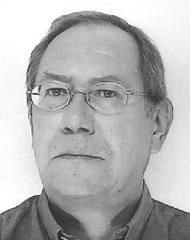Jean-Claude Deschamps (1947-2019)
23.12.2019, by Tina Keil in announcement
Obituary by Fabrizio Butera, Alain Clémence, Loraine Devos-Comby, Thierry Devos, Eva Green, Cédric Gumy, Paola Ricciardi Joos, Patricia Roux, Dario Spini, Christian Staerklé, Chiara Storari, Pascal Wagner-Egger

Jean-Claude Deschamps passed away unexpectedly on December 8, 2019. As former graduate students or colleagues, we wish to remember his career and contributions to the field.
His academic and intellectual trajectory started in Poitiers (France), continuing in Paris in the early 70’s. In those days, social psychology was taught in self-organised classes taking place in rooms filled with thick cigarette smoke, as Jean-Claude liked to reminisce. In 1975, developing a novel field of research, Jean-Claude defended his doctoral thesis on attribution and social categorisation at the University of Paris X. By then, he was already working with Willem Doise and Gabriel Mugny in Geneva (Switzerland). In 1978, they wrote together what became a classic social psychology textbook Psychologie sociale expérimentale (Armand Colin), reedited several times, and taught to countless generations of students. His contribution to the field began with two important publications. The first « Effect of crossing category memberships on quantitative judgement » was published in the European Journal of Social Psychology in 1977, when he was lecturer in the sociology department at the University of Geneva. The second text, « Social identity and relations of power between groups », appeared in 1982 in Social identity and intergroup relations edited by Henri Tajfel (Cambridge University Press). The same year, Jean-Claude Deschamps was appointed full professor of social psychology at the University of Lausanne. He trained four generations of PhD students, doing research on various topics ranging from lay explanations and social identity in different intergroup contexts to more applied questions such as school failure, social identity of apprentices, social representations of AIDS, love, or historical events. He played a crucial role in the professional development of his PhD students. His support and encouragements were precious when doctoral students were taking their first steps in the field of social psychology. At a time when graduate training in social psychology did not exist in French-speaking Switzerland, he encouraged his mentees to run 3-4 studies, «manips» as he would say, each year, to present this research at conferences, and to publish. After a conversation with Jean-Claude, one often understood better what one had tried to clumsily explain to him.
Students and doctoral candidates also benefited from his network of collaborators in Europe and in Brazil in particular. He was committed to the creation of the French social psychology association «Association pour la Diffusion des Recherches en Psychologie Sociale (ADRIPS)» and was the academic secretary of this society for a while. He actively participated in the development of a European MA programme «Diplôme Européen d'Etudes Approfondies en Psychologie Sociale (DEEAPS)». Jean-Claude Deschamps also contributed to the creation of the Lemanic center of life course studies «Centre lémanique d'étude des parcours et modes de vie (PaVIE)» that subsequently developed into an interdisciplinary and interuniversity Swiss National Science Foundation National Centre of Competence in Research LIVES “Overcoming vulnerability: Life course perspectives”. Most importantly, however, he was a pioneer in developing social psychology in French-speaking Switzerland, and setting up what is today the social psychology research centre at the University of Lausanne, Laboratoire de psychologie sociale à l’Université de Lausanne (UNILaps). Jean-Claude’s commitment to international collaborations resulted in numerous research projects and publications notably with Gérard Lemaine, Jean-Léon Beauvois, Dario Páez, Christian Guimelli, Chiara Volpato, Jorge Vala, Robert-Vincent Joulé, Jean-Pierre Deconchy, Themis Apostolidis, and Pascal Moliner.
In 2008, to employ his own words, Jean-Claude «claimed his retirement rights». After retiring, he and his wife Jacqueline focused on multiple amazing projects and adventures exploring cultures, music, and scuba diving on trips to different parts of the world.
Having been close to Jean-Claude as a student—while working on one’s «imperishable early work» («impérissable œuvre de jeunesse») as he referred to PhD theses—or as a colleague was a privilege that has marked our intellectual paths as social psychologists. Without a doubt, Jean-Claude’s contagious joviality was a quality that came across immediately upon meeting him for the first time, as well as his broad interest in social sciences ranging from cognitive psychology to Louis Althusser’s structural Marxism. He was passionate about his own and our research, often running statistical analyses through the night, impatient to see the results. Numerous students in Lausanne and Geneva admired and benefitted from Jean-Claude’s outstanding teaching style. His lectures on intergroup relations, attribution, or social influence were captivating. He was a brilliant speaker, elegant and witty, when explaining fundamental social psychological processes revealed by rigorous experimental studies.
We will always remember the joie-de-vivre and humour of Jean-Claude, which as he expressed marvellously are «weaved into our memories» (« tricoter des souvenirs ») and will continue to inspire us to avoid «mental viscosity», exceed a «succès d’estime», and, not forget his favourite motto, «do things seriously, without taking yourself seriously».
Fabrizio Butera, Alain Clémence, Loraine Devos-Comby, Thierry Devos, Eva Green, Cédric Gumy, Paola Ricciardi Joos, Patricia Roux, Dario Spini, Christian Staerklé, Chiara Storari, Pascal Wagner-Egger